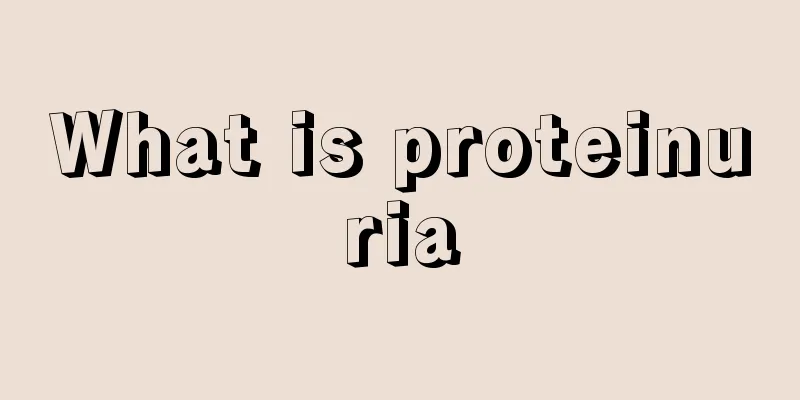What is proteinuria

|
What is proteinuria? Many friends will have this question after being diagnosed with urine protein. The so-called urine protein is the protein contained in the urine. If the kidney "filtration" is damaged due to stimulation of diseases such as inflammation, protein will appear in the urine. Its appearance means that kidney function is damaged. This means that if your kidney function is normal, no urine protein will be detected. Now that you know what urine protein represents, I need to explain to you that not all urine protein means kidney damage. There is another reason for its occurrence, which is normal physiological metabolism. It is a temporary urine protein phenomenon. If this is the case, there is no need to worry. After checking for urine protein, the most important thing to consider should be kidney disease. Kidney disease is most likely to cause urine protein because the kidney is a filtering system. The body's waste is excreted through the kidneys. After the kidneys reabsorb the waste, they excrete it through the ureters. This is normal urine. Under normal circumstances, the protein will be reabsorbed. If the kidneys are damaged, the reabsorption function will decrease, and some protein will leak out, leading to the production of urine protein. Proteinuria is not always pathological. It can be divided into functional proteinuria and pathological proteinuria. Functional proteinuria, also known as physiological proteinuria, refers to temporary proteinuria that occurs in healthy people. It is more common in young people. Under the influence of factors such as strenuous exercise, fever, high temperature, cold, and mental stress, the renal blood vessels spasm or congestion, resulting in increased permeability of the glomerular filtration membrane and a large amount of protein "leaking through". The protein in the urine of normal pregnant women may increase slightly, which is related to increased body position, renal flow and glomerular filtration rate. Functional proteinuria will disappear on its own after the cause is eliminated. Therefore, it is also called reversible proteinuria or transient proteinuria. Pathological proteinuria refers to the persistent presence of protein in the urine caused by a disease in a system or organ of the human body. Generally, the amount of urine protein in 24 hours exceeds 150 mg. After knowing what proteinuria is, if your test results show that urine protein is negative, you don’t need to be too nervous. You can do a kidney disease screening. If your kidney function is normal, it means that your body is healthy. However, if the examination finds that your kidney function is indeed impaired, please seek treatment in time. |
<<: What's the matter with high albumin
>>: The relationship between proteinuria and kidneys
Recommend
What are the dangers of dyeing gray hair
In order to keep their hair black, many middle-ag...
For pathological diagnosis of lung cancer
The clinical symptoms and X-ray signs of lung dis...
Is it good for children to drink protein powder?
It is good for children to drink some protein pow...
Will fainting from blood kill people?
Fainting at blood is a relatively common phenomen...
What is the reason for numbness in toes
If you want to effectively treat numbness in your...
How to treat right intertrochanteric fracture
Among the current disease incidence rates, the in...
What are the precautions for using aluminum sulfate chewable tablets
Aluminum sulfate chewable tablets can effectively...
How to treat HPV31 positive
A positive pv31 result is a high-risk viral infec...
Which hospital is best for the treatment of malignant melanoma with traditional Chinese medicine
Which hospital is the best for traditional Chines...
What's up with the golden beard
Human hair has many different colors, and these c...
What to do if blisters on heels burst
In daily life, many people soak their feet in a s...
What are the benefits of beeswax to people
Many people don't know enough about beeswax. ...
The dangers of high blood pressure, you need to know these
Hypertension is a disease that affects people'...
Can fresh lotus seeds be eaten raw
In autumn, many foods are ripe, so we can eat a l...
Headache, fever, body aches and weakness, be careful as it may be a sign of heaviness
Many people often suffer from headaches and fever...









